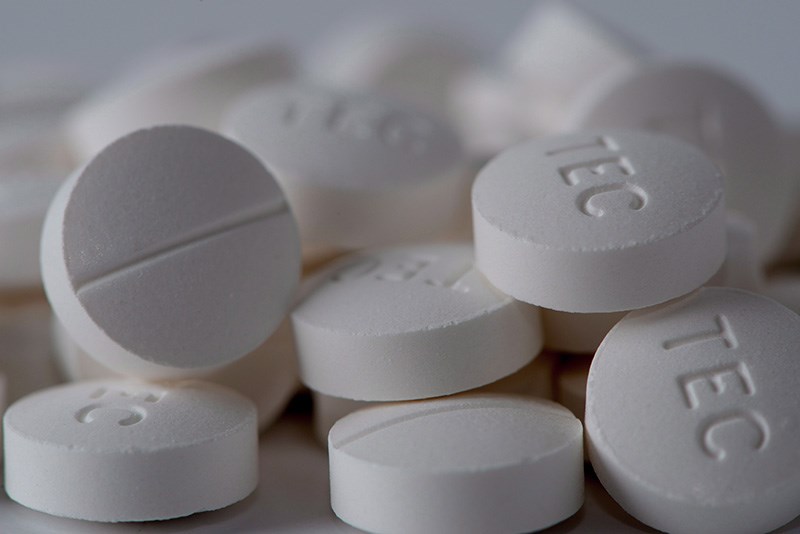VANCOUVER - The British Columbia government filed a proposed class-action lawsuit Wednesday against pharmaceutical companies in an attempt to recoup the costs associated with opioid addiction.
The lawsuit filed in the B.C. Supreme Court was announced by Attorney General David Eby and Addictions Minister Judy Darcy.
In June, the federal government said nearly 4,000 Canadians died from apparent opioid overdoses last year. British Columbia remained the province hardest hit by the opioid crisis, with 1,399 deaths, up from 974 in 2016.
The province declared a public health emergency in 2016.
None of the allegations made by British Columbia in its lawsuit has been proven in court.
Eby said there are 40 named defendants, including OxyContin-maker Purdue Pharma, which could not immediately be reached for comment.
Last month, New Brunswick said it was considering launching or joining a lawsuit aimed at recovering health-care costs from the growing opioid crisis.
In March, a Saskatchewan judge rejected a $20-million national settlement against Purdue Pharma (Canada), saying it was inadequate.
In April, New Democratic Party MP Don Davies said the federal government should pursue compensation for the cost of treating addiction. Canada is the second-leading user of opioids, after the United States. He said the health-care costs of addiction across the country amounted to about $1 billion between 2011 and 2016.
Health Canada said in April it has closely noted the outcome of U.S. legal proceedings against Purdue Pharma, where the company has paid out $634 million in fines. The department said action would be taken if it determines an advertisement poses a significant safety concern or contravenes its regulations or the Food and Drugs Act.
Purdue Pharma (Canada) said in a statement at the time that it markets its products in accordance with the rules.
“Canadians are facing a complex public health issue in which all stakeholders, including the pharmaceutical industry, have a role to play to provide practical and sustainable solutions,” the statement said.
In the U.S., drugmakers are facing hundreds of lawsuits from governments claiming the companies played a role in sparking opioid addiction and an overdose crisis that killed 42,000 Americans in 2016.
In June, Massachusetts sued Purdue and its executives, becoming the first state to personally name company brass in a complaint, said Attorney General Maura Healey.
The lawsuit alleges Purdue deceived patients and doctors about the risks of opioids, pushed prescribers to keep patients on the drugs longer and aggressively targeted vulnerable populations, like the elderly and veterans.
Purdue, based in Stamford, Conn., said it “vigorously” denies the allegations made in Massachusetts.
“We share the attorney general's concern about the opioid crisis,” the company said in a statement. “We are disappointed, however, that in the midst of good faith negotiations with many states, the commonwealth has decided to pursue a costly and protracted litigation process. We will continue to work collaboratively with the states toward bringing meaningful solutions.”
“Unfortunately, misuse and abuse and diversion of pain medications can lead to tragic consequences, including addiction, overdose and death.”



